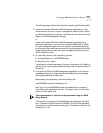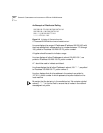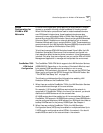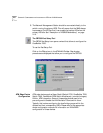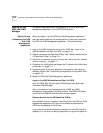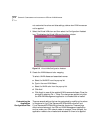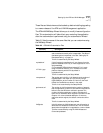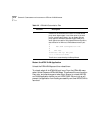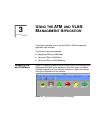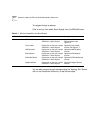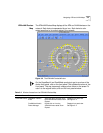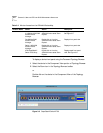
Starting Up the ATM and VLAN Manager 2-13
These files and directories must be backed-up before installing/upgrading
to a newer release of the ATM and VLAN Management application.
The ATMvLAN NMSetup Wizard allows you to modify these configuration
files. This customization will take effect upon restarting the application
after the customization is performed using the customization Wizard.
Table 2-2 lists the names of the some files that you can customize using
the NMSetup Wizard.
Table 2-2 ATMvLAN Customization Files
Filename Description
mediationd.cnf This file has the information about all the distributed pollers
and the devices that each poller is responsible. The setup of
distributed pollers is explained in the See “Setting Up for
Distributed Polling” on page 2-4.
This file is customized by the Setup Wizard.
noplatdis.cnf
127.0.0.1.ppp
If this file exists, the application will not discover from the
platform database. It will rely on manual population of the
device database
(C:\TranscendNT\ATMvLAN\runtime\sav\127.0.0.1.ppp)
using the Manual Discovery Tool. The default is to use
platform discovery and this file by default is
noplatdis.cnf.bak
This file is customized by the Setup Wizard
numcpsrvs.cnf The number set in this file (1-16) determines the number of
LESs displayed in the maps. So if you are only using 2
LES/CoreBuilder, set the number to 2 and only the first 2
LESs of the CoreBuilder are shown in the maps.
This file is not customized by the Setup Wizard.
protimeout.cnf The number in this file determines the number of seconds
that the application will wait for the network to settle down
before it start the LES failure verification process. This
number could be tuned down to about 120 seconds if
there are not redundant switch engines in the network. See
Chapter 4 for a more detailed description. If there are
redundant switch engines, the default number should be
used.
This file is customized by the Setup Wizard.
VnRgb.dat Is the file where the VLAN aliases and color information is
saved after the aliases and colors are set. This file must be
saved when the application is upgraded to a newer release.
This files is customized by using the VLAN Aliases and
Colors setup assistant.



